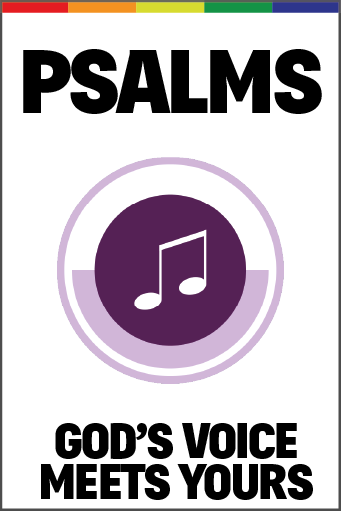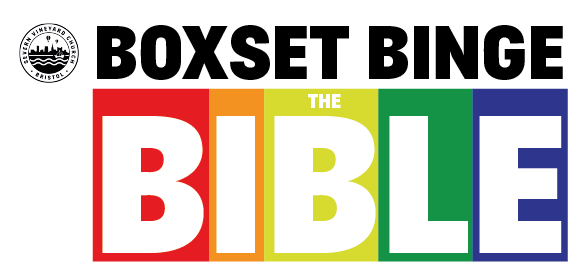
PSALMS
This is much more than a song book. The Psalms are meetings with God which reveal the heights of his glory and the depths of the human heart.
This is done by writers expressing the fulness of their experiences and emotions, fears and hopes as God’s Holy Spirit inspires them to turn from self-centredness and isolation to God-centeredness and whole-hearted connection with him.
Introduction
Our notes on the Psalms
Written in 2020
More info
Find our resources on Psalm 139 here
Talks on the Psalms
How do we get help from God? Is it only when we ask, or does God get involved and help us all the time?
This talk looks at times in life when we need help, and not just comfort, and the hope that believers through history have found in Psalm 121, which starts, "I lift up my eyes to the mountains— where does my help come from? My help comes from the Lord, the Maker of heaven and earth."
What kind of father is God? Claire Lynch takes a Father’s Day look at how God is described in Psalm 103. How well does this fit what we expect from God and good fathers in general?
Have you ever had an encounter with Christ Jesus in nature? Owen Lynch looks at how prominently nature featured in the Psalms and was woven into Jesus’ teaching as well as Old Testament stories. Do we tend to separate spiritual and physical things, or can we learn from looking for God’s nature in the world and universe around us? This talk concludes with a visual meditation on Psalm 104, and there’s a guide for how to take this further at the end.
Owen Lynch interviews Dan Morrice about his experiences of finding God at work in dramatic situations, including the rescue of over 30 trapped miners in Chile. Dan shares about the heights of discovery and creativity, followed by the valleys of dealing with long COVID, and how he has encountered Christ in this range of life experience.
Fear can play a big part in our lives right now, but what can we do about it? Dan Green looks at how we might not be able to avoid the emotion of fear, but we can stop it from taking control of us. There is lots of guidance and reassurance in the Bible about this, and the talk concludes with a meditation on Psalm 23.
What do we want to be remembered for? Jack Saunders looks at the Old Testament character of David and the range of famous stories which come to mind, from his battles as a youth to his leadership and preparation of a temple in his old age. But his memorable passion for being after God’s heart probably came from the range and depths of his worship. To be that good at worship, David must not have just shown up to lead it in public, but privately pursued worship as a passion. What space and commitments are we making in our lives to develop who we are in ways which will memorably show up in relationships with others, and what can we do if we want more of this?
If you could tell God what you really think, how much of it would be nice and how much would be angry, driven by rage, hatred or fear? Bern Leckie looks at how King David opened up his thoughts and emotions, and what journey God was taking people on to fix the problems David saw.
What difference does it make to see David and the law of his time as part way through that journey, not the destination? If that journey points to Jesus, and the law’s purpose is fulfilled with him, can he show us what God wanted for us all along, and could that surprise us?
How and when did God start getting involved in your life? Bern Leckie looks at David the Psalmist’s view that he didn’t have to do anything for God to do wonderful things with him. If we believe that we start life as originally sinful, broken, faulty ‘fixer uppers’, we might always think that we need to do something special to earn God’s acceptance. But when we look at how David credits God for making him wonderfully, can change how we relate to God and what we believe about ourselves too?
If we believe in God, why would we try to run away? Bern Leckie remembers being confused about God's acceptance and forgiveness as something we might have to keep earning, but finding that God went to some lengths to be found for who he is. Does David's praise show the size of God's love and grace instead as something too big to be earned? And can we enjoy God's presence lighting up darkness in our lives too?
How does it feel to be searched and fully known? Bern Leckie reflects on the experience of being found out for things we'd rather hide, but also known intimately by someone with complete love. King David showed vulnerability in his relationship with God, and ultimately found this wonderful and liberating. Can we share in his experience?
Are you anxious about what to do in life? In this talk, Mal Calladine looks at a worship Psalm where the writer's main concern isn't to work out their activity but bond in their being with God. We can generate needless stress for ourselves by focusing on working to please people, or God, instead of being strengthened through healthy relationships. Can letting God search, test and shape our character relieve us of stress as well as guiding what we do?
How can we face huge obstacles and learn to overcome them? In this talk, Bern Leckie looks at Psalm 18 and the training journey David is taken on by God after crying for help in a desperate situation. He sees what God can do, then starts to walk with God, get trained and strengthened by him, and finally can do everything he needs to claim victory in God's strength. Can we apply this where we need help and strengthening in our lives?
How can we make a difference in difficult times? In this talk, Mal Calladine looks at why our hurried, anxious responses to challenge can make life worse, but if we can learn to become a non-anxious presence, we can change our world. We can learn about how to do this from the writer of Psalm 37. Like them, can we trust God to help us, creating space in our lives for trust and delight to grow?
How do our desires shape the direction of our lives? In this talk, Joanna Moss looks at Psalm 84, and how a longing to be with God and in His presence can influence and bless the rest of our lives. Through this Psalm we learn that as we take time out from our busy lives to centre on God and receive His blessings, we can become more aware of God’s presence in us and at work in our lives. Can this Psalm be an encouragement for us to seek more time to just be with God?
How good is the feeling of relief? In this talk, Sarah Dowdeswell looks at how important it is for us to feel "Phew!" or "Finally!" kinds of relief when our circumstances change. Psalm 23 has become famously useful for connecting with God when we need relief, even if we are not yet seeing the changes we would like. Can we believe that God's grace is bigger than the circumstances we are in?
When we are feeling lost, how can we regain peace and perspective? In this talk, Claire Lynch looks at a Psalm with a heart cry to God about his awesomeness. It points to a “King of Glory” who is strong, victorious, connects people to God and is coming to change our city and the rest of the world. We recognise him as Jesus. But when we hit challenges and obstacles in life, are we welcoming him in to do what he does best?
How can we turn difficulty and pain into positivity and praise? In this talk, Dan Green looks at a time when David chose to turn his focus from himself to God. As David reminded himself of God’s character and what he had done, David gained a fresh perspective on his own place in the world. Could this also help us to find more joy, thankfulness and peace in life?
What happens when we bring our pain to God? In this talk, Mal Calladine looks at Psalm 40, a heartfelt cry of desperation quoted across our culture, including at the end of every U2 concert. If we can identify with the urgent call for help to deal with stuff which looks too hard for us, maybe we can feel God’s closeness the way this writer could too.
Looking at the hidden roots we send out to find water for our soul. If 'Hope for the Coming Year' is the goal, where can we invest in Hope… ‘according to His Word’? A study in the Psalms, especially the BIG one - 119.




















